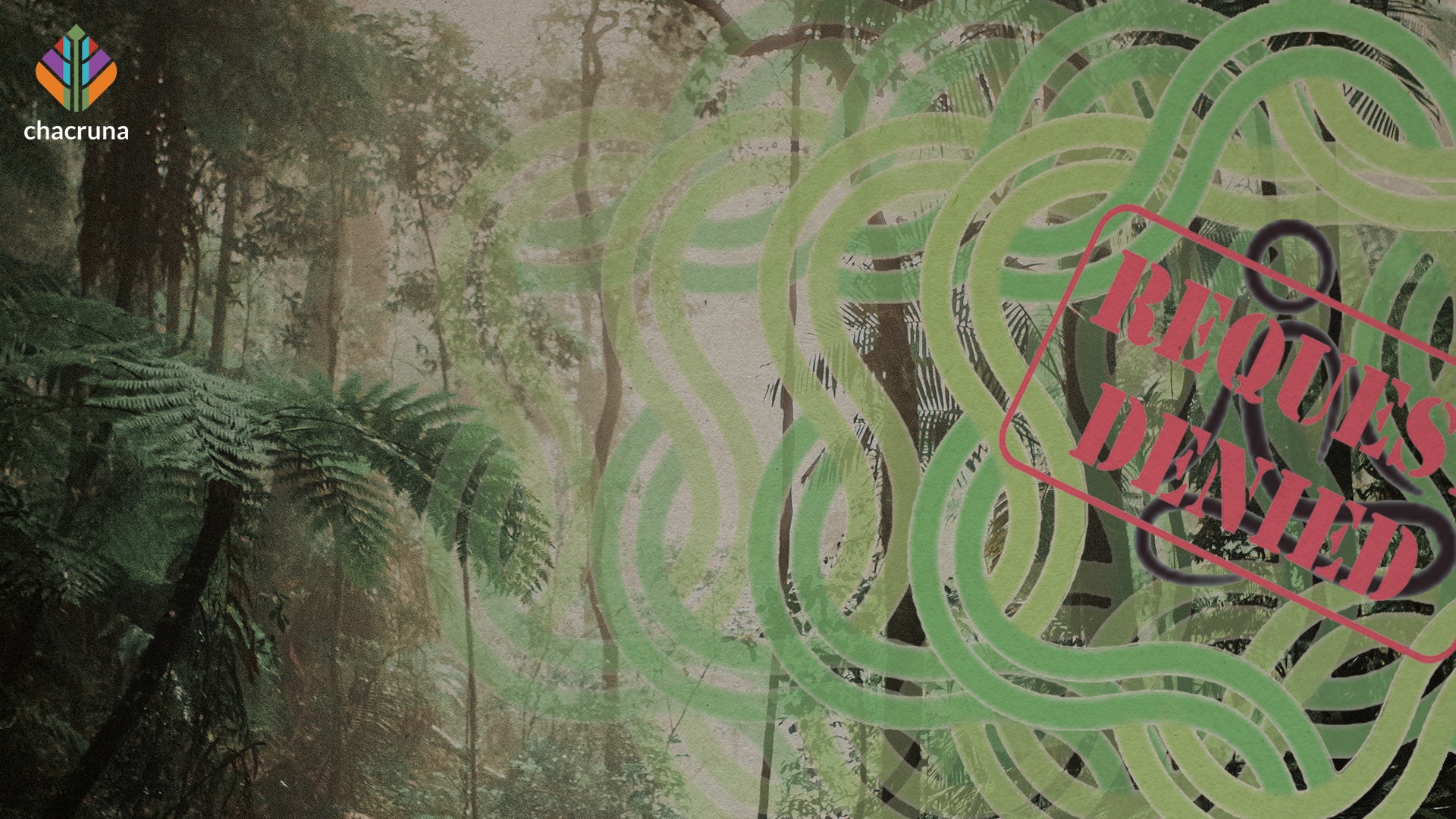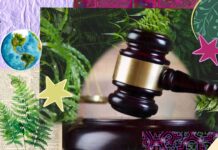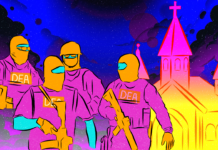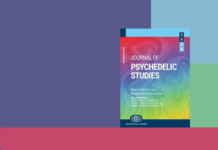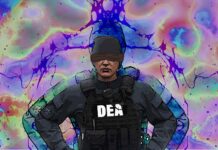- Untangling Viewpoints: Getting to Yes on the Natural Medicine Health Act - October 6, 2022
- DEA Denies Soul Quest’s Religious Exemption: Impacts on the Ayahuasca Community - June 21, 2021
- DEA and the Religious Exemption: A Fox Guarding the Henhouse - October 13, 2020
After nearly four years of waiting to find out whether the DEA will permit Soul Quest to carry on its ayahuasca ceremonies legally, the administration’s Diversion Control Division issued a “final determination,” denying the petition on April 16, 2021.
DEA Agent James Graumlich discovered Soul Quest’s offering of ayahuasca retreats online in 2016, opening a case at the government agency tasked with front-line enforcement of the Controlled Substances Act—the vanguard of the “war on drugs” in America. Shortly thereafter, the DEA “invited” Soul Quest to apply for a petition for a RFRA exemption, a process crafted on the ruling of Gonzalez v. O Centro Espirita Beneficente Uniao do Vegetal that the DEA had posted on the internet in 2009 This process has never withstood formal rule-making as required by the Administrative Procedures Act.
Soul Quest accepted this invitation in August 2017 by filing a petition with the Office of Diversion Control, providing answers to the questions on the DEA RFRA Guidance. Soul Quest’s petition went unanswered for three years, until Soul Quest filed suit in August 2020 to request an injunction against the DEA and judicial recognition of its right to use ayahuasca ceremonially. Shortly thereafter, the DEA requested a stay of proceedings twice to resolve the matter directly with Soul Quest.
Then this April, after a protracted and invasive investigation, the DEA flatly denied the petition.
In addition to closing the administration’s four-year long investigation of Soul Quest’s safety and security protocols and procedures, the letter concludes Soul Quest’s sincerity of religious belief is insufficient to warrant protection under RFRA from the criminal and civil penalties of the Controlled Substances Act. 21 U.S.C. 801 et. seq. 42 U.S.C. § 2000bb-1 et seq.
The denial comes in the middle of Soul Quest’s lawsuit claiming the DEA cannot legally interfere with its operations under the Religious Freedom Restoration Act and asking a court to enjoin (prevent) the DEA from enforcing the CSA against them. Case No. 6:20-cv-701-WBB-DCI.
Because the denial was a “final determination” by the DEA, the law requires Soul Quest to appeal to federal circuit court within 30 days of the letter’s issuance—a deadline that passed rapidly with no appeal filed. That deadline passage is now the subject of debate in whether Soul Quest will be given a hearing in the ongoing litigation. In the current lawsuit, the district court could rule on the request for an injunction without granting a hearing, grant a hearing to assess the evidence, or rule that the district court has no jurisdiction because the circuit court of appeals must hear the matter.
In this letter, the DEA claims to employ the “strict scrutiny” test as required by the Religious Freedom Restoration Act. There are two sides to this test. The plaintiff (Soul Quest) must establish the prima facie case has been proved. Prima facie is from the latin “at first sight” meaning that the court will not continue the legal analysis unless all elements of the first segment of the case are proved. There are three factors to this side of the equation: 1. that the government is placing a substantial burden on 2. a religious exercise 3. that is sincerely held.
Once the plaintiff establishes the factors on the left, the burden switches to the government (DEA) to prove two factors; 1. that the government has a compelling interest and 2. that the burden the government is placing on the plaintiff is the least restrictive means possible achieve that government interest.
The burden switching is very important in this legal framework. This is how it looks:

The plaintiff or claimant has the first burden of proof. But once proven, the government then bears the burden of proof.
Since losing the UDV and Daime cases in 2006, the DEA has learned to not yield any ground on the factors on the left side of the Strict Scrutiny equation. In these two cases, the government agreed by stipulation that the plaintiffs’ burdens were proved, thus yielding the left side of the burdens. The government then lost on the “least restrictive means” test for these churches using ayahuasca as their sacrament.
In the Soul Quest case, the DEA did not make findings of fact on the first two factors of 1. substantial burden, and 2. religious exercise. Instead, the agency shredded Soul Quest’s petition on the 3rd factor of sincerity of belief. The letter is very instructive for any church hoping to receive official recognition of its religious right to use ayahuasca as a sacrament.
Key Takeaways from DEA’s Denial of Soul Quest’s Petition for RFRA Exemption
- Carefully weigh the pros and cons of petitioning the DEA for an exemption: Volunteering to engage in a petitioning process with the DEA is a fraught with pitfalls. The DEA will probably use information gathered in this process to find a reason to deny the petition and paint the petitioner into a procedural corner. If you want formal recognition of your right to use ayahuasca, a fairer route to you may to file a petition in court so you can get a more neutral decision maker on your case.
- Know what you believe, and practice what you preach: DEA held that Soul Quest’s use of ayahuasca is not a sincere religious practice because their story had holes in it and DEA found and exploited those holes. For instance, SQ held out the Ayahuasca Manifesto as their holy text, but almost no one interviewed with the church mentioned the text. Ceremony participants were not required to read or even know about the Manifesto, and the mere act of a signing a membership form did not prove that participants had a sincere religious belief in anything unique to this church. If there is a doctrine, teach it. If there are practices, do them regularly.
- Distinguish between “medicine” and “sacrament.” The DEA stated that Soul Quest is a wellness center subject to the CSA, not a church exempt from the CSA listing a number of factors. For example: most people come once, not repeatedly like one would expect of a church service. The leadership and church materials refer to ayahuasca as a medicine. People who attend and the church’s leadership claim that participation in ceremony results in healing of physical and psychological illness. DEA points to the commercial nature of the center’s website and materials in which ayahuasca ceremony is but one in a list of therapeutic offerings.
- Handle your sacrament with care. How you import and handle your sacrament is critical—from where, using what means, and how controlled. It is more indicative of sincerity in religious exercise when the sacrament is provided by an indigenous lineage holder rather than from a random website where you can buy the vine and leaf. DEA counted it against Soul Quest that they got their vine and leaf from a seller in Europe, rather than from a lineage in the Amazon. When the DEA attempted to follow up with the seller, the company stated that the vines were not for human consumption, distancing themselves from Soul Quest. Further, Soul Quest had sent these shipments to third parties, who then shipped it to Soul Quest. DEA pointed to this circuitous routing as creating the conditions of diversion.
- Follow your own policies and procedures. First, a church using ayahuasca must have strong policies and procedures in place for safety of its participants and for the security of its sacrament. If you don’t have those in place, get them immediately. You must have screening procedures, participation policies, ceremony guidelines, adequate informed consent documentation, and an emergency crisis plan. Then, use them without fail. Even though Soul Quest showed that it had policies and procedures, the DEA offered the tragic death of a young man in 2018 as well as several hospital trips by participants as proof that Soul Quest was not following its own procedures, thus the CSA’s continued strict prohibition of ayahuasca by Soul Quest remains the least restrictive means to protect the public health and safety.
The Road Ahead
It’s been five long years since the DEA first noticed Soul Quest’s ayahuasca retreats on the internet and invited the church to participate in what was hoped to be a even-handed religious freedom process. Five expensive years. Five fruitless years. Five years of discovering exactly how the federal government plays the RFRA game. As a forerunner for a growing number of religious organizations that have formed since the UDV win in 2006, Soul Quest took on the job of being the first “homegrown” church to demand recognition of its religious right to use ayahuasca. It is also taking the biggest hits from the government.
How Soul Quest manages the current jurisdictional game playing will likely decide the fate of this plant medicine church. If they cannot get an evidentiary hearing at the district court level so they can offer new evidence and cross-examine the government’s witnesses, the prognosis is not good. But if they can get the district court to hear their case and put witnesses on the stand, they stand a chance.
In sum, what is entirely clear from the DEA’s denial of Soul Quest’s petition is this: the practices, procedures, structures, and methodologies of the many practitioners of ayahuasca in America can impact the entire community. It will only take a few bad facts and unfavorable precedents to risk blanket prohibition for ayahuasca for all religious use.
While it does not pay to play by the DEA’s “rules,” it pays less to be over-confident in one’s religious convictions.
For more information on the legality of ayahuasca in America, see “Bubbling with Controversy: Legal Challenges for Ceremonial Ayahuasca Circles in the United States.” For copies of case pleadings in this and other ayahuasca cases, see Bialabate.net.
Art by Trey Brasher.
—
Note:
A special thank you to Sean McAllister for his contributions, editing, and guidance on this article.
Take a minute to browse our stock:
Did you enjoy reading this article?
Please support Chacruna's work by donating to us. We are an independent organization and we offer free education and advocacy for psychedelic plant medicines. We are a team of dedicated volunteers!
Can you help Chacruna advance cultural understanding around these substances?


